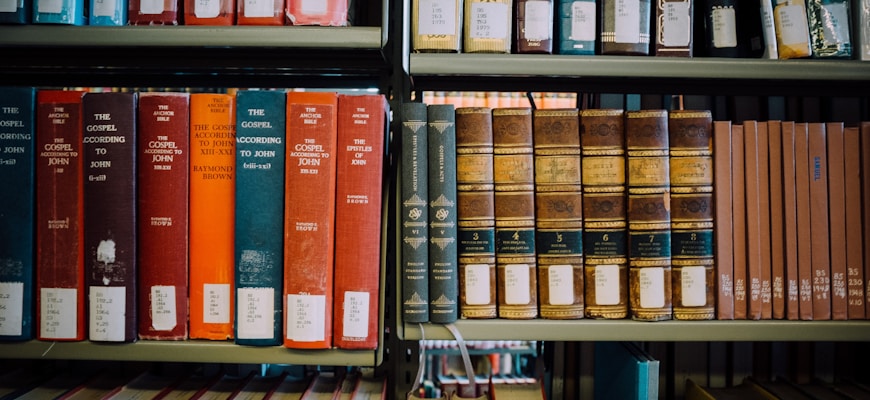The Legal Challenges of NFT Ownership and Copyright

- Understanding NFT Ownership Rights in the Digital Age
- Navigating the Complexities of Copyright Law in the NFT Market
- Legal Implications of Buying and Selling NFTs
- Challenges of Protecting Intellectual Property in the NFT Space
- The Role of Smart Contracts in Defining NFT Ownership
- Addressing Potential Legal Disputes Surrounding NFTs
Understanding NFT Ownership Rights in the Digital Age
In the digital age, understanding NFT ownership rights is crucial for creators and buyers alike. Non-fungible tokens have revolutionized the way we perceive ownership of digital assets, but with this innovation come legal challenges that must be addressed.
When someone purchases an NFT, they are not necessarily purchasing the copyright to the underlying work. Instead, they are buying a token that proves ownership of a unique digital asset. This distinction is important because it means that while the buyer may own the token itself, the creator still retains the copyright to the work.
This can lead to confusion and disputes over who has the right to reproduce, distribute, or display the digital asset. Without a clear understanding of NFT ownership rights, both creators and buyers may find themselves in legal trouble.
To avoid these issues, it is essential for creators to clearly outline the rights that come with purchasing an NFT. By specifying what the buyer can and cannot do with the digital asset, creators can protect their copyright and prevent unauthorized use.
Buyers, on the other hand, should carefully review the terms and conditions of an NFT sale to ensure they understand what rights they are acquiring. It is crucial to be aware of any limitations on the use of the digital asset to avoid infringing on the creator’s copyright.
Overall, navigating the legal landscape of NFT ownership rights requires clear communication and a thorough understanding of copyright law in the digital age. By educating themselves on these issues, creators and buyers can ensure a fair and lawful transaction that respects the rights of all parties involved.
Navigating the Complexities of Copyright Law in the NFT Market
Navigating the complexities of copyright law in the NFT market can be a daunting task for both creators and buyers. With the rise of non-fungible tokens (NFTs) as a popular way to buy and sell digital artwork, questions about ownership and copyright have become increasingly important.
One of the key challenges in the NFT market is determining who owns the copyright to a particular piece of digital art. While the buyer of an NFT may own the token itself, the copyright to the underlying artwork typically remains with the creator. This can lead to confusion and disputes, especially when the artwork is used or sold without the creator’s permission.
Creators looking to protect their copyright in the NFT market may consider using licenses to clearly define how their work can be used. By including specific terms and conditions in the NFT smart contract, creators can retain more control over how their art is shared and monetized. However, enforcing these licenses can be difficult, especially across international borders.
Buyers of NFTs should also be aware of copyright issues when purchasing digital artwork. Just because you own an NFT does not necessarily mean you have the right to use the underlying artwork in any way you choose. It’s important to understand the terms of the sale and any licensing agreements that may apply.
Overall, navigating copyright law in the NFT market requires careful attention to detail and a solid understanding of intellectual property rights. By being proactive and seeking legal advice when needed, creators and buyers can protect themselves and ensure that their rights are respected in this rapidly evolving industry.
Legal Implications of Buying and Selling NFTs
When it comes to buying and selling NFTs, there are several legal implications that both buyers and sellers should be aware of. NFTs are unique digital assets that can represent various forms of ownership, such as art, music, or collectibles. However, the legal landscape surrounding NFTs is still evolving, and there are several key considerations to keep in mind.
One of the primary legal challenges of NFT ownership is copyright. When you buy an NFT, you are purchasing the token that represents ownership of a digital asset, but not necessarily the underlying copyright to that asset. This means that while you may own the NFT itself, you may not have the right to reproduce, distribute, or display the digital content associated with it.
Another legal implication to consider is the potential for disputes over ownership. Because NFTs are decentralized and can be bought and sold on various platforms, it can be difficult to determine who the rightful owner of a particular NFT is. This can lead to legal battles over ownership rights, especially if the original creator of the digital asset believes their copyright has been infringed upon.
Challenges of Protecting Intellectual Property in the NFT Space
Protecting intellectual property in the NFT space poses several challenges that creators and owners must navigate. One key issue is the difficulty in enforcing copyright laws due to the decentralized nature of NFTs. This lack of centralized oversight makes it challenging to track and prevent unauthorized use of digital assets.
Additionally, the ease of creating and selling NFTs has led to an increase in copyright infringement cases. Many creators struggle to prove ownership of their work and protect it from being copied or distributed without their consent. This has raised concerns about the security and authenticity of NFTs in the marketplace.
Another challenge is the lack of established legal frameworks for NFT ownership and copyright protection. The rapid growth of the NFT market has outpaced regulations, leaving creators and owners with limited legal recourse in the event of disputes or violations. This legal ambiguity can make it difficult to resolve intellectual property issues efficiently.
Furthermore, the borderless nature of NFT transactions presents challenges in enforcing intellectual property rights across different jurisdictions. This can complicate legal proceedings and hinder efforts to hold infringers accountable for their actions. As a result, creators and owners must navigate a complex legal landscape to safeguard their intellectual property in the NFT space.
The Role of Smart Contracts in Defining NFT Ownership
Smart contracts play a crucial role in defining ownership of NFTs by providing a secure and transparent way to establish and enforce ownership rights. These self-executing contracts are written in code and automatically execute actions when predetermined conditions are met. By leveraging blockchain technology, smart contracts ensure that ownership of an NFT is securely recorded and cannot be altered without the consent of the rightful owner.
One of the key advantages of using smart contracts for NFT ownership is the ability to automate the transfer of ownership. This eliminates the need for intermediaries and reduces the risk of disputes over ownership rights. Additionally, smart contracts can include specific terms and conditions regarding the use and transfer of the NFT, providing clarity and certainty to both the current and future owners.
Moreover, smart contracts can also help address copyright issues related to NFT ownership. By embedding copyright information directly into the NFT’s metadata through a smart contract, creators can establish their ownership rights and licensing terms. This can help prevent unauthorized use or reproduction of the NFT, ensuring that creators are fairly compensated for their work.
Overall, smart contracts offer a powerful tool for defining and enforcing ownership rights in the world of NFTs. By leveraging blockchain technology and automation, these contracts provide a secure and efficient way to establish ownership, transfer assets, and protect intellectual property rights. As the NFT market continues to grow, smart contracts will play an increasingly important role in shaping the legal landscape surrounding NFT ownership and copyright.
Addressing Potential Legal Disputes Surrounding NFTs
Addressing potential legal disputes surrounding NFTs is crucial in ensuring a smooth ownership process and protecting the rights of creators and buyers alike. With the rise in popularity of NFTs, there has been a corresponding increase in legal challenges related to ownership and copyright.
One of the main legal challenges surrounding NFTs is the issue of intellectual property rights. Creators of NFTs need to ensure that they have the proper rights to the underlying assets they are tokenizing. Failure to do so could result in legal disputes over ownership and copyright infringement.
Another legal challenge is the issue of resale rights. Once an NFT is sold, the buyer may want to resell it in the future. However, there may be restrictions placed on the resale of the NFT, which could lead to disputes between the original creator and the new buyer.
Additionally, the decentralized nature of blockchain technology, which is used to create and trade NFTs, can make it difficult to resolve legal disputes. The lack of a central authority to oversee transactions and enforce agreements can complicate matters when disputes arise.
To address these potential legal disputes, creators and buyers of NFTs should carefully review and negotiate the terms of any smart contracts associated with the tokens. They should also seek legal advice to ensure that they are not inadvertently infringing on intellectual property rights or violating the terms of the NFT sale.



